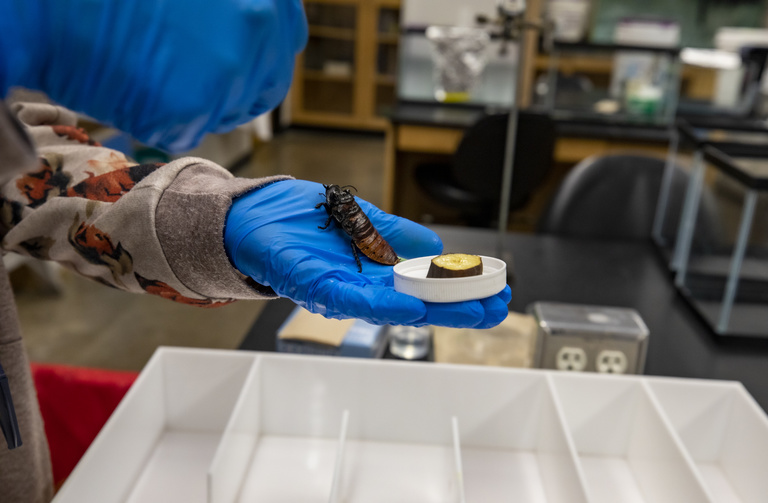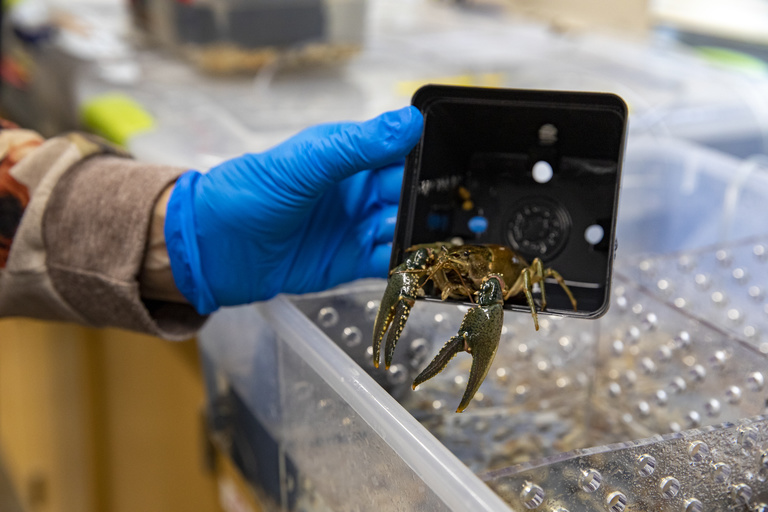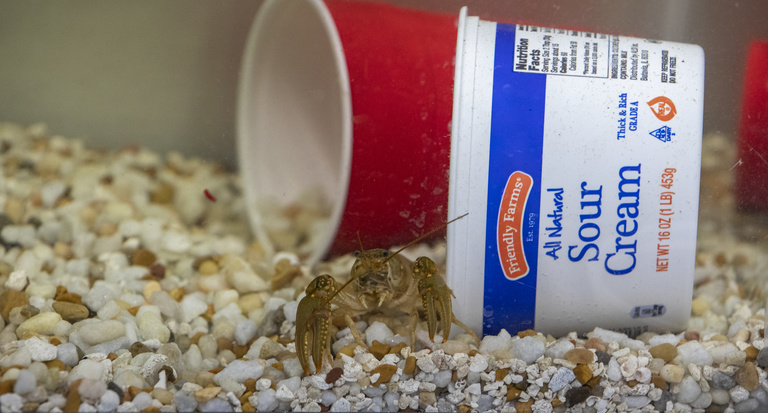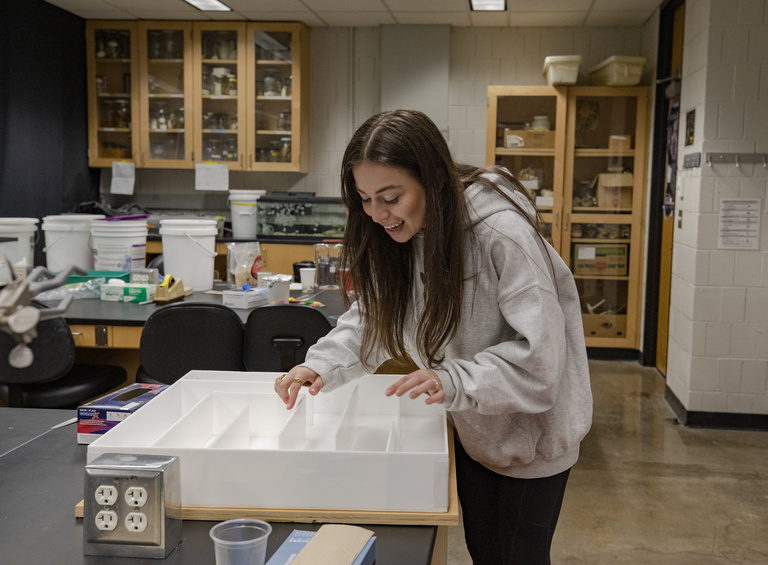Breadcrumb
- Home
- Undergraduate Education
Undergraduate Education
Classes taught by Prof. Eberl
Prof. Eberl's primary teaching is in the area of Animal Behavior. Currently he teaches the "Animal Behavior Laboratory" class in the fall semesters, and the "Animal Behavior" lecture class in the spring semesters.
In addition, he helped develop the "Genes and Development" course and co-taught and directed it for many years. Students report that when he began "flipping" this class around 2003, their learning and engagement in the topic improved dramatically. Though he is not currently teaching it, the course is still taught in this style.
Throughout his teaching, Prof. Eberl prioritizes student learning, skills development and career development.
Students from the Animal Behavior Laboratory course have paper published!
Congratulations to two students from the Fall 2023 Animal Behavior Laboratory course (BIOL:3245) for their published paper!
Danielle Saldana (pictured above on the left) and Stephanie Rocca (pictured above on the right) had a paper published in microPublication Biology for their independent project on crayfish.

Professor Eberl recognized by students for making a difference in their education
Daniel Eberl, professor in the Department of Biology, feels excited when he sees his students applying what they are learning in the classroom.
“As many of our faculty and staff, I work hard to help students along their path to knowledge, independence, and self-fulfillment,” Eberl said. “It is gratifying to be recognized by them for doing so.”
Eberl enjoys seeing his students in the lab designing new experiments and excited about their discoveries.
In his years of teaching, Eberl has made a lot of memories with his students and many of them center around seeing his students excel and grasp the material.
Eberl said he felt out of place embarking on his undergraduate studies, and it wasn’t until his professors and teachers guided him and invested in his education.
“I am grateful to them and want to pass it forward,” Eberl said. “I am sure that these students will also pass it forward in their own circles and their own ways.”
Animal Behavior Laboratory
Fall semesters
This free-standing lab course (BIOL:3245) is designed to allow students to engage with animal behavior and learn first-hand how to handle different animals, how to explore their unique abilities, and how to ask and investigate questions about how and why they do what they do. Students conduct a combination of prescribed experiments and independent projects, using animals as diverse as insects, crustaceans, fish and mammals. Grading is by a skills-based assessment, in which students are involved in planning and assessing their own progress. This approach is intended to keep students focused on learning rather than earning points. In addition to learning about animals, students become proficient in experimental design, statistical analysis, data presentation and teamwork. Some students went on to publish the results from their independent projects!
See the Photo Gallery below!
Animal Behavior
Spring semesters
This lecture course (BIOL:3244) explores diverse marvels of animal behaviors to begin to understand the mechanisms of how they accomplish unique or shared behaviors and the motivations underlying why they do so, at time scales from the immediate to the evolutionary. Animals interact with their often changing environment, with prey and predators, and with each other in a variety of social contexts. This course will take you on a journey through genetic, developmental, physiological, social and ecological mechanisms, and borrow thinking from disciplines such as economics, sociology, physics, biochemistry and game theory, on the way to understanding the behavior of animals.



